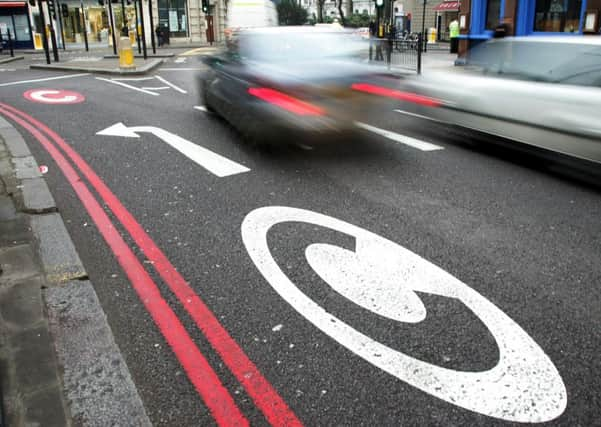Alastair Dalton: Congestion charging back on the agenda amid record traffic


At stake was motorists having to pay £2 to drive into the capital – a “congestion charge” similar to the one introduced in London two years before.
The result was emphatic. Citizens rejected the scheme by nearly three to one, and the then council leader Donald Anderson declared it “dead and buried”.
Advertisement
Hide AdAdvertisement
Hide AdA couple of years later, the UK Labour government shelved its plans for national “road pricing” – a type of pay-as-you-go for drivers – and the whole notion of changing how motorists pay for using roads was off the agenda.
The recession followed, which led to a reduction in traffic levels and the pressure for tackling congestion being eased.
However, with the economy growing again, the number of vehicles using Britain’s roads is on the rise once more, and set a new record of 320 billion miles last year.
The latest available figures for Scotland, for 2015, showed traffic also surging on some major roads, including a 20 per cent increase on the M90 in Fife over the past decade.
Further evidence came last month in research from analysts INRIX which showed peak-hour congestion in Aberdeen is now worse than in London.
It found drivers heading home along the Great Western Road in Glasgow average less than 13mph, while those coming into Edinburgh from the A1 only manage 25mph.
Congestion is becoming an issue again – and the principle of charging drivers is being reconsidered by policy makers.
At a conference in Edinburgh this week, support was voiced by a variety of those involved in transport, and significantly, ministers are leaving the door open on it.
Advertisement
Hide AdAdvertisement
Hide AdOne of the catalysts is the harm congestion is causing buses, which have suffered a major decline in passengers at a time when rail travel is booming.
Paul White, of the Confederation of Passenger Transport, which represents bus and coach operators, said charging should be considered, pointing out that a bus could replace 73 cars.
Scott Allan, who chairs the local authority chief transport officials’ group SCOTS, said he was a road-pricing fan.
He pointed out that technology had developed hugely since charging was last actively considered – potentially making its introduction far easier than in the past.
Transport minister Humza Yousaf told delegates at the Scotland Policy Conferences event “It’s not part of the Scottish Government’s ambition at the moment. Local authorities can take a different view” – but he added “It’s going to take political courage.”
When drivers complain about traffic delays, many forget they contributed to that gridlock.
It may also be convenient for motorists to think that once they have bought, taxed and insured their car, the cost of driving is just the price of fuel – and not also the impact on others using the roads.
My hunch is that congestion will have to get noticeably worse before drivers will even consider a change to the way they pay for their motoring.
The catch 22 is that the main alternative for many – the bus – could by then have become a wholly unattractive option because of the snarl-ups..